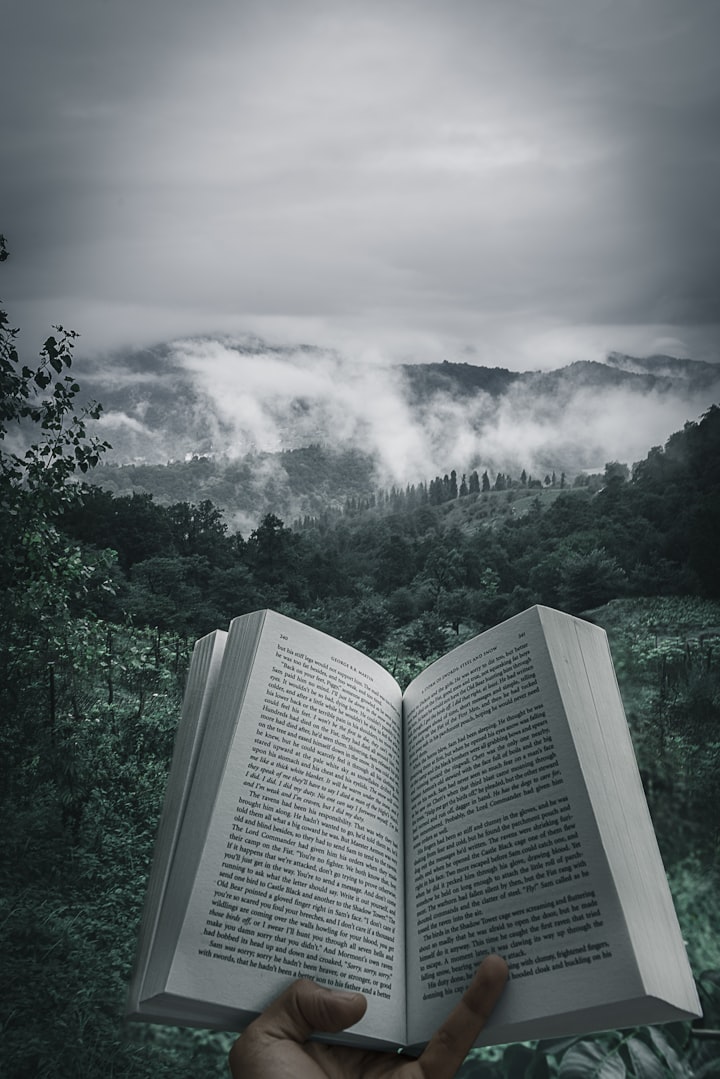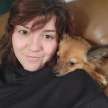Book Writing Advice
From a novice novelist, who has finished their first round of edits.

I've done it. I've completed my first round of edits for my debut novel, Bottle Trees and Broken Dreams. This round of edits consisted of checking for spelling and grammar, omitting issues I found in the full read, and adding things that would help build the world and clear things up. I took this draft from 55,000 words to 60,000 words, which is something I'm very happy about.
Who knows? Maybe the second round of edits will see more additions and more omissions, I don't know yet. What happens next is, that in a few weeks, I will read through the entire book again, take notes, and edit again, from start to finish. From there, I will either do the process a third time, or, if I'm happy with where the book is at, I will query for agents after the second round. We will see where things go!
For now, I asked the community what kinds of questions they would like answered regarding book writing. Two years ago, if you told me I'd write an entire novel, I wouldn't believe you. I've always been a short-form writer, but I've found a real love of long-form creation that I'd like to share with those who are also interested in learning about it.
Writing a book is a daunting task, no ifs, ands, or buts about it. I'm hoping my perspective can help people who want to do it, but are having trouble with certain aspects of the task. Without further ado:
Jazzy Golçalves writes:
Can you speak to that process of outlining and assembling the whole [book]?
This question is difficult to answer because many writers go about writing in such different ways. Through this process, I've learned that there are two distinct types of authors: pantsers and plotter. I fall into the former category... kind of.
Here's a good chart on writing style for consideration:

According to this chart, I'm a Lawful Plantser. One thing I knew for sure when starting this book was the ending (well, I had two variations, but one I was always more sure about than the other). Other than that, I really let my imagination run wild when writing. I knew my characters well, and I let them interact with each other to get from point A to point B.
I had to figure out how to get from my beginning to my ending, and as I wrote, things would come to me that helped to drive the plot. When I had an idea, I'd write it down for future consideration. That's not to say that every time I had an idea I just went out and wrote it, but I'd make a note of it in future chapter sections of the book. By the time I got to the last four chapters, I had them planned out in full, just due to the nature of my process. I knew exactly what needed to happen and when to reach that conclusion I had been waiting so long for.
I, personally, wouldn't recommend outlining the story in its entirety. It's good to have ideas and plot points in mind, but I feel having too much structure can make the task more daunting than it needs to be. Go with the flow if you can, and take it chapter by chapter.
If you're going to outline anything, outline your characters. Create detailed sheets about their personalities, that way you know how they'd interact with the situations you decide to put them in during your writing. While having an ending in mind isn't a necessity, having an idea about where your story is going to end up might help you get to the finish line.
While writing, I also had some themes in mind that I wanted to get across to my audience. While it's a psychological thriller/murder mystery, written mostly for entertainment, I knew that underlying themes of toxic relationships, narcissism, and misogyny in society were something I wanted to play with. I knew I wanted to write this with a feminist lens, so to speak. These ideas are not overt in the story, but they are sprinkled in with my word choice and the ways characters interact with each other. They're not even super obvious until the end of the book is reached, then some things I wrote that might seem normal, all of a sudden become red flags to the reader.
All this to say, don't stress out too much about an outline. If you have an idea in mind for a long-form story, start it. You never know where you might end up. Some of my best ideas came off the cuff. For example, I found myself in a tight spot, so I ended up writing myself out of it by having my protagonist's phone break. It took the story in a completely different direction, but it made sense for the plot, and it kept me moving at the pace I needed to move.
I do hope you find this helpful, and I wish you much luck and prosperity in your future book-writing process!
WellsFiction (Matt) writes:
I'd love to hear more about your writing style and how you figured out how to write novels and all that good stuff. If you have any advice for starting out writing a novel please let me know.
I loved this question... "how did you figure out how to write novels?"
I didn't, really! I just had an idea that I felt could be better off told in a longer format, and I ran with it. I would like to touch upon idea generation with this question, as it might be helpful for people to hear. Because how does one differentiate between an idea that's a short story versus something that deserves more time to tell it?
This idea came to me in the form of a nightmare after a very real trip to a haunted mansion. My mother-in-law and her cousin took me to this building called Haunted Graham Mansion in the middle of the night while I was visiting Southwest Virginia. While there, I thought I saw two figures standing at the top of a hill. When I went to sleep that night, I saw those two figures come to me in a nightmare. In my dream state, I had envisioned they were murdered souls coming to me from beyond the grave to help avenge their deaths.
It was like a true "a-ha!" moment when I woke up the next day. I felt this idea could be a good book. While I certainly could have written a short story on this concept, it seemed that it deserved to be something more. When I got back home from vacation, about a month later, I took those thoughts to paper, and in 2 days, I had written 20,000 words.
After that, the draft sat stagnant, for a really long while. I didn't know what I was doing. I didn't know if I could ever finish. I ended up taking the first chapters with me to graduate school, and that's when I felt comfortable experimenting, changing things, and finding the motivation to keep the story going.
Everything about this process for me has been a learning curve for me. I got ahead of myself, I had to change the POV from third person to first after having written a third of the story, and it was a lot to keep up with. I jumped head-first into the deep end without a floaty, and I didn't know how to swim. However, I persisted, I kept writing, even if it wasn't as often as I liked, and two years later, I had that completed draft I always dreamed of.
Writing a novel isn't linear and it isn't easy. If you have an idea you feel deserves to be larger than a short story, jump in. You never know where it might take you, and it never hurts to try.
As for writing style, I feel that is something that comes naturally to us as we continue to write and grow. What's funny about this story is that my last chapters were so much better written than my first chapters, and that's because there were nearly two years in between them. My voice altered, it got better, and I had to go back to my previous chapters to reflect the voice I wanted to portray.
Just be authentic to yourself and your voice and it will take you where you need it to be. Try not to compare yourself to other published authors and don't go out of your way to emulate someone else. When I went into this book, I went into it because I knew it was a story that I would like to read. Write for yourself first and foremost, and the rest will come with time, through growth and learning on your journey.
I hope you find this helpful! I wish you the best of luck in your writing endeavors.
Alexandria Stanwyck writes:
I would like to write a full length novel, I have the ideas that turn into plot planning, maybe a start of a chapter, but then I get sidetracked with other projects. (That might be part of the problem.)
Any tips on how to keep focused?
This is a hard question for me to answer because realistically, I could have written this story a lot faster than I did if I found the discipline to stick to a writing schedule. I never had one. I would try to set a schedule. I would try to set goals. And I would fail, miserably, every time I tried to do so.
My advice for you is this: give yourself grace.
It's not a race. I completely understand your feelings about being able to knock out short stories and poetry with ease. It's nice to be able to get things done in a day. Unfortunately, writing a novel will never take a day (unless you're a coked-out Stephen King).
Acknowledge that, upon starting this process, it will be a long time until you see the results you so wish for. And ultimately, never, ever give up. Even if it feels like it's taking you too long. Even if you feel like you can't do it. Even if you take months-long breaks between touching your manuscript (yes, that happened to me). Just keep going, no matter what.
If you have an idea, start writing. Don't worry too much about having an outline. You really don't even have to write the beginning. I know there are plenty of authors who write the endings first and work backward, maybe that's something that may work for you. Who knows? You certainly won't know until you try.
Additionally, it's perfectly okay to get sidetracked. I got sidetracked a lot. I've written many short stories and poems throughout the course of my writing this novel. That's a good thing. As long as you're creating, it's always a good thing.
I found that I had moments of hyperfixation with my novel. When I had the energy, I went with it. I'd often write a lot at once and get lost in the world I created. I would also burn myself out by writing so much at once, but hey, what can you do? I also thought about writing more than I did any actual writing. One thing that was helpful when I was in my lulled periods, was taking notes when ideas came to me so I'd have them for future marathon sessions. A lot of my ideas came from dreams or from just talking about the story with my friends and family. I always say my style of writing is 95% thought and 5% putting words to paper, and that's just what works for me. Don't stress yourself out too bad if you start this book and then feel like you're not doing enough, you just need to work at a pace that is comfortable for you and feel confident in that.
ADHD is a complex thing, and what works for me, may not work for you. I'm sorry if this wasn't as helpful as you'd wished, but our brains are funky, aren't they? I would highly recommend just giving it a go and seeing where you land. I hope at the very least you find what I have to say motivating. If you ever get stuck on anything in the process and need some help or encouragement, don't be afraid to reach out to me! I'd be happy to help you through the rough patches, and I would love to watch you succeed because I know you can do it.
I wish you much luck on your book-writing journey. Don't think too hard about it, and put some words to paper. You never know where it might take you.
Ariel Joseph writes:
One big question kind of along the lines of how to write yourself out of a plot hole, what do you do if you hit a wall so to speak? Whether it's an actual plot hole or just a section that you feel isn't working, do you have any advice about whether you think it's better to leave it and move onto something else or is there some technique you tried to be able to write through it?
Some of the things I'm working on involve a lot of world building so at some point I burn out on outlining and just jump in and then find myself hitting walls frequently and then end up abandoning my projects for weeks at a time.
I found myself hitting a wall during a really crucial point of my novel. I wrote myself out of it by having my protagonist's phone break. It caused her to completely switch gears and got me back on track in an unusual way. It also acted as a catalyst for future plot points that I hadn't previously considered.
I don't know why I did what I did, but it just worked. I was certainly in a period of hyperfixation and I just wanted to move on from what I was currently writing cause it was boring for me to keep going where I was going, so honestly, it was probably born out of laziness, but it ended up being a good idea.
I just want to say, I also abandoned this project for weeks at a time (months if I'm being completely honest). I'd say that's okay, as writing a book isn't a race. It's easy to get caught up in this idea that we have to do things in a certain amount of time, especially in comparison to the writers who seem to be able to crank out multiple books a year.
When I stepped away from my book for long periods of time, I still made an effort to think about it. I thought about what I had already written, where I wanted to go, and how I wanted things to play out to get to my conclusion. I took notes, wrote things down, and just sat on the ideas until I felt confident to put them in writing.
Sometimes it is good to leave your writing for a while, but try to keep it at the back of your mind. Maybe you're stuck, but you know where you need it to go. If that's the case, try moving ahead a bit and writing a chapter in the future. Perhaps getting those ideas out on paper will give you an idea of how to get there from your stuck point.
Additionally, don't be afraid to delete things (put them in a separate document just in case) if you feel like something isn't working. It's okay to change directions and experiment with something different. Though it can be scary, it may lead you to better solutions than you had before.
One thing to consider as well is do you feel you might be outlining too much? Is getting caught up in the details and feeling this self-imposed pressure to follow these details to a tee hindering your creativity? Not everything has to go according to plan. Think about your world and your characters, of course, they're important, but let your understanding of them help you forge a path forward, even if that isn't following your outline the way you thought it would.
Now that I'm thinking about it, maybe do a writing exercise where you take your characters and put them in a specific situation with a simple conflict to write a short story with them. It doesn't have to be for your book, but experiment with how they would interact with the problem you've created and how they would interact with each other. Maybe taking them out of your story and playing with them a little more will give you ideas on how to move your narrative along in the direction you want it to go. I have no idea if this will work, and it's not something I've personally tried, it's just something that came to mind as I've been writing this response.
I do hope you find this helpful in some way. I know how difficult it is to feel stuck, as I experienced many periods of stuck-ness in this process. I wish you all the luck in the world in completing your novel. You can do it, just push through these rough patches, and don't stress the time it takes you to get to the other side. Go at the pace you're comfortable with, and before you know it, you'll have a completed manuscript on your hands. I believe in you!
Thank you for reading this milestone piece for me. And huge thank you to everyone who participated in my previous post by asking me questions on the book writing process. I hope anybody who is interested in writing a novel finds this information either helpful or informative.
As stated previously, I'm not an expert. This process is new to me too, but I'm hoping with this article, I can pull back the curtain and make the process a little more accessible for those who are interested in trying their hand at completing a novel manuscript.
Check out previous installments of my "I wrote a book" series here:
About the Creator
Ashley Lima
I think about writing more than I write, but call myself a writer as opposed to a thinker.






Comments (10)
Wooohooooo congratulations! I'm soooo happy for you! *does my little happy dance*. Anyway, I'm a chaotic planster! I just never knew there were terms for these, lol. Also, give yourself grace is such an amazing advice!
This was compelling. Thank you for your honesty, especially about taking breaks from the book. Some don’t understand how necessary that is. I found it so cool that the story evolved from a nightmare. I get a lot of my ideas from dreams too. Apparently I’m a neutral pantser.
Ashley, congrats on your book. This article really had some good tips as I'm still in the "the draft sat stagnant, for a really long while." stage. The chart is so good though, feels like I'm a neutral plotter right now. Thank you for sharing.
Amazing advice! Thank you so much for doing this. All this advice was so great, & thank you for addressing my question! I definitely am probably overthinking outlining. I am a planner by nature so I tend to do that if I'm being honest and it does stifle the creative flow for sure. But I really like the writing exercise idea you gave. I'm going to try that for sure!
Multifaceted look at the process, and infinitely useful. Congratulations on finishing so much of the momentous work, now it's just around the corner! I thought the table you gave was interesting, and find myself all over the place in it. I combine aspects of absolute chaos and rigid order in my own process. I like to build it out of order, but I usually do start with the opening. I'm very meticulous about structure, but in the fabric of my events I wish for a blended sense of temporality that bridges past present and future. The mind processes the present through the light of its past, but always forwarding itself into future projections. I think collective consciousness works similarly. I look forward to the future of your book!
Dear Ms. Ashley - Such a Brilliant How-to; I'm certain you will help so many with this advice. As an aside: I've had a career of writing franchise offering prospectives from the 'reverse' ie; "Lawful Plantser" If they couldn't get past the ending they were unworkable. *I plan to stand in line for a book-cover autograph. Jay Jay Kantor, Chatsworth, California 'Senior' Vocal Author - Vocal Author Community -
Congrats on finishing. When i read the part where you rewrote a 1/3 of the novel from 3rd to 1st know how soul crushing that can be. Great resilience! I can write 30 short stories no problem, but writing 30 chapters of one book looks insurmountable: ive seen what you said before… plot out the characters and then the plot can write itself based on the situations you put them inn, like the broken mobile. Good luck with the novel and the next round of editing
Also, I love the D&D -ahem- Writing Alignment chart lol
This was very enlightening. I find myself a chaotic writer. When I have a chance to write, my brain just goes on a tangent and I try and keep up and clean up after it. I need to get better at planning lol.
Thank you Ashley for your advice! Our brains are definitely funky sometimes. I like to think that ADHD is our superpower and kryptonite, and it's nice to be reminded that it's okay. Thanks for the encouragement, I will definitely take you up on your offer to help out if need be.